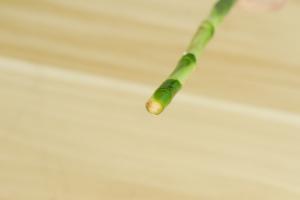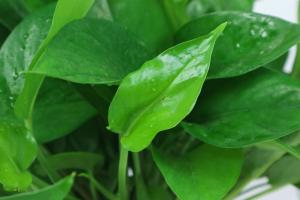Should You Water Bell Pepper Plants Daily?
Bell peppers are among the most popular vegetables grown in home gardens, and for good reasons. They are easy to grow, provide a bountiful harvest, and are rich in vitamins and minerals. However, proper care and maintenance are critical to ensure the health and productivity of your bell pepper plants. One of the essential considerations is how often to water them. In this article, we will explore the best watering practices for bell pepper plants and answer the question of whether you should water them daily.
The Water Requirements of Bell Pepper Plants
Bell pepper plants need adequate moisture to thrive, but overwatering or underwatering can harm their growth and development. So, how much water do they need? The answer depends on various factors, such as the climate, soil type, and stage of growth. Generally, bell pepper plants require about 1-2 inches of water per week, depending on the weather conditions. However, deep and infrequent watering is more beneficial than shallow and frequent watering.
The Risks of Watering Bell Pepper Plants Daily
While it may seem like a good idea to water your bell pepper plants daily to ensure they have enough moisture, it can do more harm than good. Watering them too often can lead to several problems, such as:
Root Rot: Overwatering can cause the roots of the plants to rot, killing the plant altogether.
Nutrient Depletion: Watering too frequently can flush out essential nutrients from the soil that the plant needs to grow properly.
Disease: Overwatering can create ideal conditions for fungal and bacterial diseases that can harm the plants.
Pest Infestations: Excess moisture can attract different pests, such as slugs, snails, and aphids, which can damage the plants.
Best Practices for Watering Bell Pepper Plants
To ensure the health and productivity of your bell pepper plants, follow these best practices for watering:
Check the soil moisture regularly using a moisture meter, and water only if the top 1-2 inches of soil are dry.
Water deeply, but infrequently, preferably once or twice a week, to ensure the water reaches the plant's root zone.
Water in the morning, so the leaves have time to dry before nighttime. Wet foliage can increase the risk of fungal diseases.
Use mulch, such as straw or bark chips, to retain soil moisture and reduce the need for frequent watering.
Avoid getting water on the foliage, as this can promote fungal growth and other diseases. Instead, use a soaker hose or watering can to water around the base of the plant.
Conclusion
In conclusion, watering bell pepper plants daily is not necessary and can do more harm than good. Instead, follow the best practices outlined in this article to ensure your plants have adequate moisture and thrive throughout the growing season. Remember, watering is just one part of bell pepper plant care, and other factors such as sunlight, soil, and fertilizer also play a crucial role in their health and productivity. With proper care and attention, you can enjoy a bountiful harvest of delicious and nutritious bell peppers from your home garden.

 how many times do yo...
how many times do yo... how many planted tre...
how many planted tre... how many pine trees ...
how many pine trees ... how many pecan trees...
how many pecan trees... how many plants comp...
how many plants comp... how many plants can ...
how many plants can ... how many plants and ...
how many plants and ... how many pepper plan...
how many pepper plan...






























